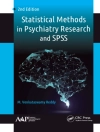This volume provides a thorough and up-to-date synthesis of the expansive and highly influential literature from the last 30 years by bringing together contributions from leading authorities in the field, with emphasis placed on the most commonly investigated drugs of abuse.
* Emphasises the most commonly investigated drugs of abuse, including alcohol, cocaine, nicotine, and opiates
* Brings together the work of the leading authorities in all major areas of the field
* Provides novel coverage of cutting-edge methods for using cognitive neuroscience to advance the treatment of addiction, including real-time neurofeedback and brain stimulation methods
* Includes new material on emerging themes and future directions in the use of cognitive neuroscience to advance addiction science
Tabela de Conteúdo
List of Contributors viii
Preface xii
Section I Neurocognitive Mechanisms of Addiction 1
1 Addiction as Maladaptive Learning, with a Focus on Habit Learning 3
Theresa H. Mc Kim and Charlotte A. Boettiger
2 Neural Bases of Addiction?]Related Impairments in Response Inhibition 29
Hugh Garavan, Alexandra S. Potter, Katie L. Brennan, and John J. Foxe
3 Working Memory Functioning and Addictive Behavior: Insights from Cognitive Neuroscience 55
Travis T. Nichols and Stephen J. Wilson
Section II Neurocognitive Mechanisms of Addiction: Reward, Motivation, and Decision Making 77
4 Behavioral and Brain Response to Non?]Drug Rewards in Substance Abuse: Implications for Motivational Theories of Addiction 79
James M. Bjork
5 Role of the Value Circuit in Addiction and Addiction Treatment 109
Anna B. Konova and Rita Z. Goldstein
6 The Insula: A Critical Neural Substrate for Drug Seeking under Conflict and Risk 128
Nasir H. Naqvi and Antoine Bechara
7 Addiction as a Symptom of Failure Modes in the Machineries of Decision Making 151
A. David Redish
Section III Neurocognitive Mechanisms of Addiction 173
8 The Role of Sensory and Motor Brain Regions in Drug?]Cue Reactivity 175
Yavor Yalachkov, Jochen Kaiser, and Marcus J. Naumer
9 Neural Mechanisms Underlying Craving and the Regulation of Craving 195
Hedy Kober and Maggie Mae Mell
10 Neurobiology of Alcohol Craving and Relapse Prediction: Implications for Diagnosis and Treatment 219
Corinde E. Wiers and Andreas Heinz
11 Neural Mechanisms Associated with Stress?]Induced Drug Craving 240
Verica Milivojevic, Helen C. Fox, and Rajita Sinha
Section IV Cognitive Neuroscience and the Development of Addiction 267
12 Neurological Risk Factors for the Development of Problematic Substance Use 269
Sylia Wilson, Kathleen M. Thomas, and William G. Iacono
13 Adolescence and Addiction : Vulnerability, Opportunity, and the Role of Brain Development 292
David M. Lydon, Adriana Galván, and Charles F. Geier
14 Neurocognition and Brain Abnormalities among Adolescent Alcohol and Drug Users 311
Anita Cservenka and Bonnie J. Nagel
Section V Cognitive Neuroscience and the Treatment of Drug Addiction 333
15 The Neurocognitive Mechanisms Underlying Psychosocial Interventions for Addiction: Motivational Interviewing as a Case Study 335
Sarah W. Feldstein Ewing and Jon M. Houck
16 Brain Stimulation as a Novel Technique for Craving Management and the Treatment of Addiction 357
Aviad Hadar and Abraham Zangen
17 Development of Real?]Time f MRI Neurofeedback for Craving in Nicotine?]Dependent Cigarette Smokers 390
Karen J. Hartwell, Kathleen T. Brady, and Mark S. George
Section VI Emerging Themes and Future Directions 405
18 Advancing Addiction Research through the Integration of Genetics and Neuroimaging 407
Hollis C. Karoly, Sarah L. Hagerty, Barbara J. Weiland, and Kent E. Hutchison
19 Neuroeconomic Perspectives on the Potent but Inconsistent Motivations Characteristic of Addiction 440
A. James Melrose, Eustace Hsu and John Monterosso
20 Beyond Functional Localization: Advancing the Understanding of Addiction-Related Processes by Examining Brain Connectivity 472
Matthew T. Sutherland, Xia Liang, Yihong Yang and Elliot A. Stein
21 Functional Neural Predictors of Addiction Outcomes 503
Elliot T. Berkman
Index 527
Sobre o autor
Stephen Wilson is currently an Assistant Professor of Psychology at the Pennsylvania State University, USA where he is affiliated with the Center for Brain, Behavior, and Cognition. Dr. Wilson’s primary area of research interest is addictive behavior, with a focus on cigarette smoking. He uses interdisciplinary approach that integrates theory and methods from traditional behavioral addiction research with those derived from the affective, cognitive and social neurosciences. His research has been supported by the National Institute on Drug Abuse, the National Cancer Institute, and the Eunice Kennedy Shriver National Institute of Child Health and Human Development.












